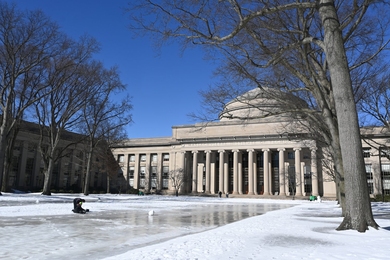President Clinton, in a December 29 executive order, established 10 principles to guide the research partnership between universities and all agencies of the federal government.
It represents the first time that the basic goals and rationale of the partnership have been articulated to "provide the framework for the development and analysis of all future Federal policies, rules, and regulations for the federal government-university research partnership," the order said.
"More than any other nation in the world," said the President, "we rely on a partnership between our government and our public and private research universities to conduct research that improves our economy, health and national security, while also training our future science and technology workforce. It is vital that this partnership be equitable and effective to sustain US leadership across the frontiers of scientific knowledge."
The order was the culmination of studies that began in October 1995 with an initiative led by MIT President Charles Vest and University of Pennsylvania President Judith Rodin in their roles as members of the President's Council of Advisors on Science and Technology (PCAST).
The order directs the President's Office of Science and Technology Policy (OSTP) to "consult with all stakeholders and conduct a regular review of the state of the partnership and make recommendations to ensure its continued vitality," the White House statement said.
The guiding principles are widely accepted at this point by members of both political parties and by industry, said Arthur Bienenstock, OSTP associate director for science.
"American industry is really aware of the role of science and technology in the economy and the role of science and technology workforce in achieving industrial growth. I think any administration would be sensitive to those issues," said Dr. Bienenstock, who will soon return to his physics faculty position at Stanford.
GUIDELINES
The guidelines include four guiding principles and six operating principles. They are fully described in the April 1999 National Science and Technology Council report, "Renewing the Government-University Partnership," which resulted from the study and five open workshops on the issues.
The guiding principles are:
1. Research is an investment in the future, helping to assure the health, security and quality of life of US citizens.
2. The integration of research and education is vital. "The intellectual development and scientific contributions of students who participate in federally sponsored research are among the most important benefits of publicly supported research."
3. Excellence is promoted when investments are guided by merit review, and "can accommodate endeavors that are high risk that have the potential for high payoff."
4. Research must be conducted with integrity; "the credibility of the collective enterprise relies on the integrity of each of its participants."
The six operating principles "that shall assist agencies, universities, individual researchers, and auditing and regulatory bodies in implementing the guiding principles" are:
1. Agency cost-sharing policies and practices must be transparent, "including explicit information regarding the amount of cost sharing expected."
2. Partners should respect the merit review process. "Excellence in science is promoted when all parties adhere to merit review as the basis for distributing federal funds for research projects and refrain from seeking federal funds through non-merit-based means."
3. Agencies and universities should manage research in a cost-effective manner. The goal "should be to make maximum resources available for the performance of research and education."
4. Accounting and accountability are not the same. The principal measure of accountability must be the research results and whether the work was consistent with the original scope of the proposed research.
5. The benefits of simplicity in policies and practices should be weighed against the costs; "one size doesn't necessarily fit all."
6. Change should be justified by need and the process made transparent. "Modifications in administrative, regulatory, auditing requirements, or in cost-sharing expectations, should be kept as infrequent as possible but consistent with the need to respond to changing circumstances."
A version of this article appeared in MIT Tech Talk on January 10, 2001.





